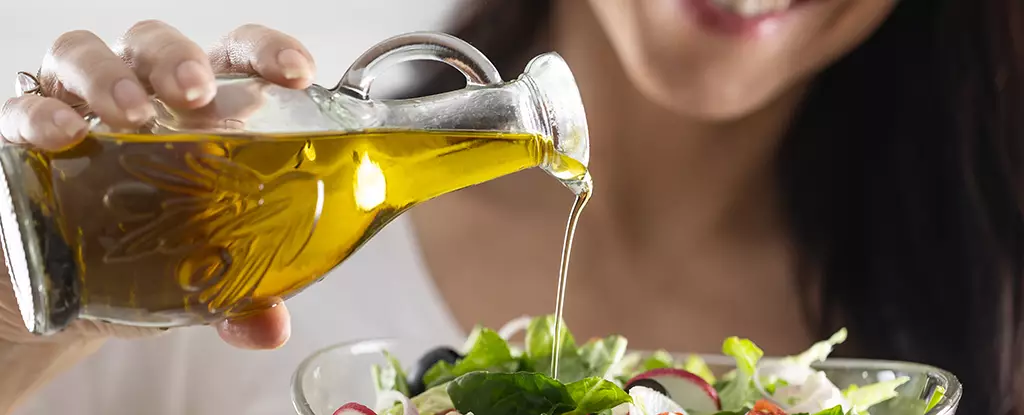Switching from an omnivorous diet to one with a variety of nuts, fruits, and vegetables in a light dressing is a fairly sure-fire way for people at risk of heart disease to lower their body’s fat levels. However, for some individuals, adding a good drizzle of extra virgin olive oil might compromise an otherwise healthy lifestyle choice.
A team of researchers from the University of Florida and the National Institute of Diabetes and Digestive and Kidney Diseases conducted a study on the health benefits of plant-based diets for individuals at risk of developing atherosclerotic cardiovascular disease. Recent promotion of vegan diets and eating like you’re living in the Mediterranean has lauded the benefits of extra virgin olive oil (EVOO) as a means of reducing worrying cholesterol levels. The Mediterranean diet includes animal-derived fats, and adding the frequently recommended amount of olive oil means fat consumption can reach up to nearly half of the body’s energy intake.
The researchers recruited 40 adults aged 18 to 79 who spent a total of eight weeks on a carefully put together vegan diet: four weeks on a diet that consisted of four additional teaspoons of EVOO per day, and four weeks on a low EVOO version of the diet with no extra olive oil, with a week’s break in between. Both the low and high EVOO diets led to improvements in cardiometabolic profiles compared with measures taken before the diets.
The study revealed that the order in which the diets occurred made a difference in how cholesterol levels changed compared with their baseline at the very start of the study. Starting the diet period with relatively liberal amounts of olive oil and then transitioning to meals with little to no olive oil saw the volunteer’s low-density lipoprotein (LDL) or ‘bad’ cholesterol levels drop. On the other hand, splashing EVOO on after weeks of little to no oil seemed to impede LDL reduction. The researchers suggested that the small amounts of saturated fat found in the extra virgin olive oil might affect the liver’s processing of LDLs, causing them to rise in the blood where they can increase the body’s risk of stroke and heart attack.
While the study showed promising results in terms of improving cardiometabolic profiles with both low and high EVOO diets, the researchers emphasized that for individuals at highest risk for atherosclerotic cardiovascular disease, a low EVOO intervention may provide superior LDL cholesterol lowering. This suggests that cutting out extra helpings of olive oil may be beneficial for those at higher risk of heart disease.
The study highlights the potential impact of extra virgin olive oil on heart disease risk factors. It suggests that moderation in the consumption of olive oil, especially for individuals at high risk for heart disease, may be beneficial. Further research is needed to explore how this association might play out among larger groups of participants and across longer periods of time. Ultimately, the study serves as a reminder that dietary choices can have a significant impact on heart health and overall well-being.


Leave a Reply